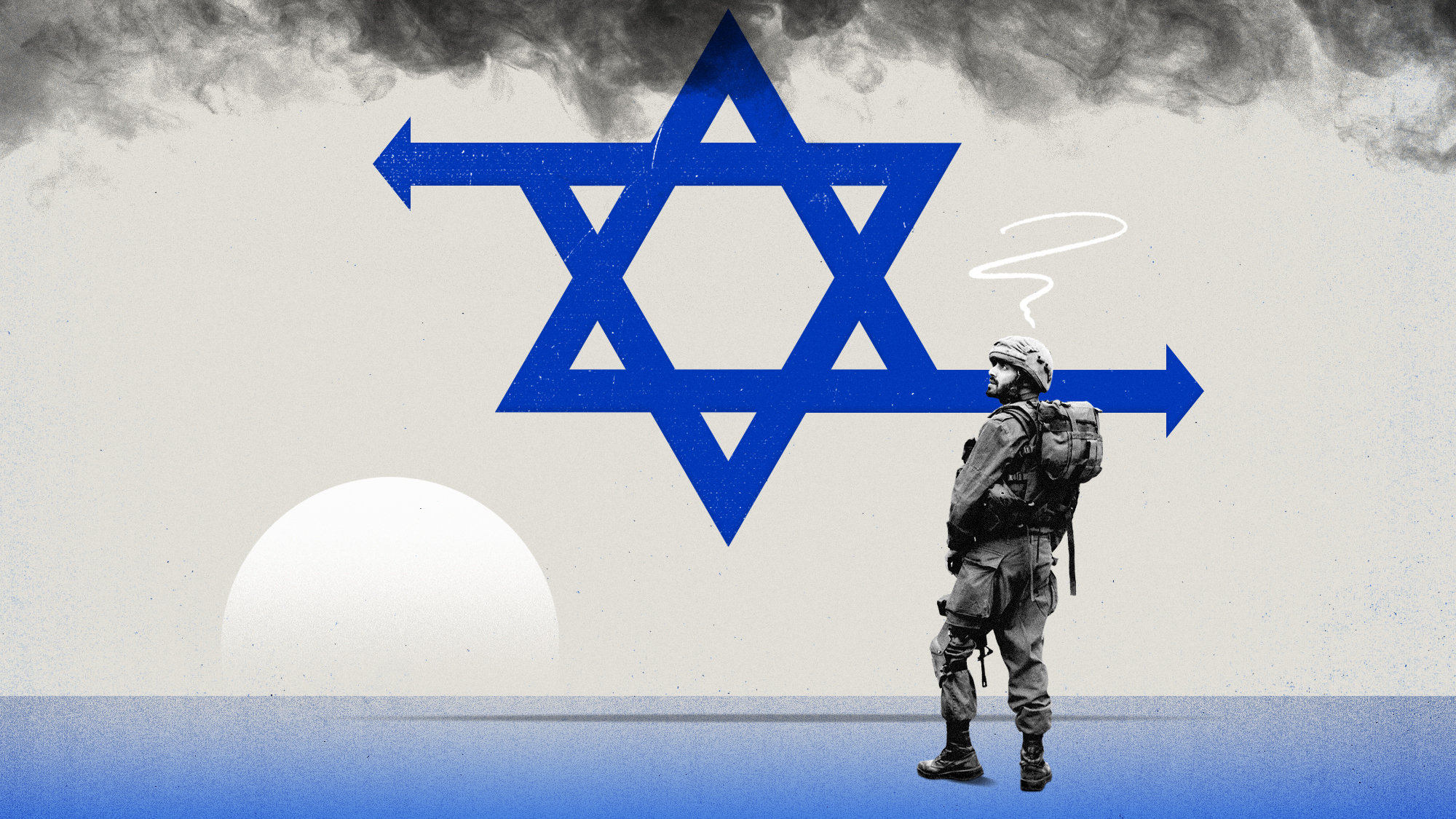Israel's Gaza offensive is at a crossroads. What comes next?
After a month of violence and destruction, the war between Israel and Hamas is poised to enter a new phase


A free daily email with the biggest news stories of the day – and the best features from TheWeek.com
You are now subscribed
Your newsletter sign-up was successful
When Hamas fighters crossed into Israel from the Gaza Strip on October 7, killing some 1,200 people before retreating back into isolate Palestinian territory with more than 200 hostages in tow, they did so with the expectation — the hope, even — that their attack would provoke "an overwhelming Israeli response" and embroil the entire region in the spiraling cycle of violence. In the days and weeks that followed, the Israeli government has seemed more than willing to acquiesce — first with a brutal aerial bombardment of the densely packed strip, followed by a slow ground incursion that has killed more than 14,000 Palestinians, including thousands of children, creating a massive humanitarian crisis that's captured attention and inflamed passions across the globe.
Throughout the fighting, Israeli officials have offered a number of different, if interconnected, reasons and goals to justify the sheer ferocity of their actions in Gaza: from rescuing the hundreds of hostages still held in captivity to decimating Hamas entirely to deterring future attacks from across the region. Now, following an extended siege on Gaza City's al-Shifa hospital, under which Israel claims Hamas had built an extensive subterranean command center, officials have begun suggesting the Israeli Defense Forces may turn their guns toward southern Gaza, where many civilians have condensed themselves — often at Israel's own urging — to escape the fighting in Gaza City. At the same time, any plans to push south are complicated by ongoing negotiations between Israeli and Hamas officials, as well as within the Israeli government itself, over the release of the captured hostages — discussions that are "intense and remain fluid" according to ABC News. All the while, international pressure for a cease-fire continues to mount.
Where could things go from here?
The Week
Escape your echo chamber. Get the facts behind the news, plus analysis from multiple perspectives.

Sign up for The Week's Free Newsletters
From our morning news briefing to a weekly Good News Newsletter, get the best of The Week delivered directly to your inbox.
From our morning news briefing to a weekly Good News Newsletter, get the best of The Week delivered directly to your inbox.
What the commentators said
The debate over whether to prioritize a southern offensive or hostage negotiations is taking place at "the highest levels of the government and the IDF," The Jerusalem Post reported. Calling Hamas "desperate for" some sort of negotiated hostage deal, the looming prospect of some agreement between the warring parties "may currently be slowing the push into southern Gaza." Advocates argue that the IDF's newfound control over northern Gaza offers a "unique tipping point" that lends itself to a "natural pause" in the fighting.
The Israeli military, however, has already begun dropping aerial leaflets urging residents of Khan Younis, the strip's largest southern city, to "evacuate your places of residence immediately and head to known shelters," according to Al Jazeera. To the extent that Israel plans to move ahead with its goal of the total destruction of Hamas as a threat, that cannot be accomplished "without taking the whole Gaza Strip," retired IDF Gen. Amir Avivi told the Associated Press.
Complicating things further, one U.S. official told The Washington Post, is the fact that "not all hostages are being held by Hamas," and are instead in the custody of groups like Palestinian Islamic Jihad. According to the paper, a substantive pause in fighting for multiple days is necessary to assemble hostages to be released and arrange for their safe passage."
What next?
For as much as both the Israeli and American governments seem united in terms of their "sober-sounding statements about the need to eliminate Hamas," the most likely outcome is that the group "both as a military force and a political movement, survives," Mohammad Alsaafin wrote for The Nation. While "many, if not most" Palestinians don't subscribe to Hamas' specific ideology, the group enjoys support for the impression that it's "the only party committed to fighting Israel’s settler-colonial domination."
A free daily email with the biggest news stories of the day – and the best features from TheWeek.com
Pushed on what Gaza will look like "the day after," former Israeli diplomat and longtime political advisor Alon Pinkus predicted to France24 that by demanding an untenable threshold for success, Israeli Prime Minister Benjamin Netanyahu is focusing on his domestic standing and is "deliberately setting a course or a confrontation with the Biden administration." That confrontation will allow him "conceivably, arguably," to blame Biden for "holding him back on the precipice of a historic and game changing victory." Speaking with National Public Radio's Steve Inskeep, Netanyahu himself insisted that the Israel public is "united today" like never before — even as Reuters reports that "thousands" of Israelis are marching to his personal residence to demand more action on releasing the hostages.
Rafi Schwartz has worked as a politics writer at The Week since 2022, where he covers elections, Congress and the White House. He was previously a contributing writer with Mic focusing largely on politics, a senior writer with Splinter News, a staff writer for Fusion's news lab, and the managing editor of Heeb Magazine, a Jewish life and culture publication. Rafi's work has appeared in Rolling Stone, GOOD and The Forward, among others.
